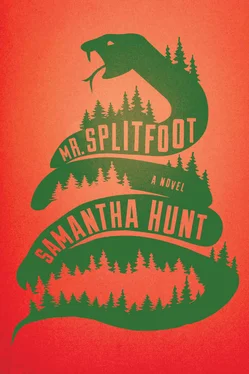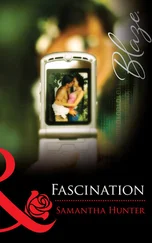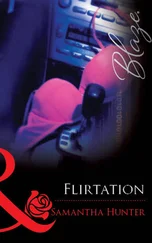Out on the ledge of my room, I maintain a small infirmary for injured and geriatric pigeons. A few tattered boxes, some shredded newspaper. One new arrival hobbles on a foot that has been twisted into an angry knuckle, a pink stump. I see she wants nothing more to do with the hydrogen peroxide that bubbled fiercely in her wound last night. I let her be, squatting instead to finger the underside of another bird’s wing. Beneath his sling the ball of his joint has finally stayed lodged in its orbit, and for this I am relieved. I turn my attention to mashing meal.
“Hello, dears.” The air of New York this high up smells gray with just a hint of blue. I sniff the air. “It’s getting chilly, hmm?” I ask the birds. “And what are your plans for the New Year tonight?” The hotel has been in a furor, preparing for the festivities all week. The birds say nothing. “No plans yet? No, me neither.”
I stand, looking out into the darkening air. “HooEEEhoo?” It’s a question. I stare up into the sky, wondering if she will show tonight. “HooEEEhoo?”
Having lived in America for fifty-nine years, I’ve nearly perfected my relationships with the pigeons, the sparrows, and the starlings of New York City. Particularly the pigeons. Humans remain a far greater challenge.
I sit on the ledge with the birds for a long while, waiting for her to appear. It is getting quite cold. As the last rays of sun disappear from the sky, the undersides of the clouds glow with a memory of the light. Then they don’t anymore, and what was once clear becomes less so in the darkening sky. The bricks and stones of the surrounding buildings take on a deeper hue. A bird cuts across the periphery of my sight. I don’t allow myself to believe it might be her. “HooEEEhoo?” Don’t look, I caution my heart. It won’t be her. I take a look just the same. A gorgeous checkered, his hackle purple and green. It’s not her.
She is pale gray with white-tipped wings, and into her ear I have whispered all my doubts. Through the years I’ve told her of my childhood, the books I read, a history of Serbian battle songs, dreams of earthquakes, endless meals and islands, inventions, lost notions, love, architecture, poetry — a bit of everything. We’ve been together since I don’t remember when. A long while. Though it makes no sense, I think of her as my wife, or at least something like a wife, inasmuch as any inventor could ever have a wife, inasmuch as a bird who can fly could ever love a man who can’t.
Most regularly she allows me to smooth the top of her head and neck with my pointer finger. She even encourages it. I’ll run my finger over her feathers and feel the small bones of her head, the delicate cage made of calcium built to protect the bit of magnetite she keeps inside. This miraculous mineral powers my system of alternating-current electrical distribution. It also gives these birds direction, pulling north, creating a compass in their bodies, ensuring that they always know the way home.
I’ve not seen my own home in thirty-five years. There is no home anymore. Everyone is gone. My poor, torn town of Smiljan — in what was once Lika, then Croatia, now Yugoslavia. “I don’t have wings,” I tell the birds who are perched beside me on the ledge. “I don’t have magnetite in my head.” These deficiencies punish me daily, particularly as I get older and recall Smiljan with increasing frequency.
When I was a child I had a tiny laboratory that I’d constructed in an alcove of trees. I nailed tin candle sconces to the trunks so that I could work into the night while the candles’ glow crept up the orange bark and filled my laboratory with odd shadows — the stretched fingers of pine needles as they shifted and grew in the wind.
There is one invention from that time, one of my very first, that serves as a measure for how the purity of thought can dwindle with age. Once I was clever. Once I was seven years old. The invention came to me like this: Smiljan is a very tiny town surrounded by mountains and rivers and trees. My house was part of a farm where we raised animals and grew vegetables. Beside our home was a church where my father was the minister. In this circumscribed natural setting my ears were attuned to a different species of sounds: footsteps approaching on a dirt path, raindrops falling on the hot back of a horse, leaves browning. One night, from outside my bedroom window, I heard a terrific buzzing noise, the rumble of a thousand insect wings beating in concert. I recognized the noise immediately. It signaled the seasonal return of what people in Smiljan called May bugs, what people in America call June bugs. The insects’ motions, their constant energy, kept me awake through the night, considering, plotting, and scheming. I roiled in my bed with the possibility these insects presented.
Finally, just before the sun rose, I sneaked outside while my family slept. I carried a glass jar my mother usually used for storing stewed vegetables. The jar was nearly as large as my rib cage. I removed my shoes — the ground was still damp. I walked barefoot through the paths of town, stopping at every low tree and shrub, the leaves of which were alive with June bugs. Their brown bodies hummed and crawled in masses. They made my job of collection quite easy. I harvested the beetle crop, sometimes collecting as many as ten insects per leaf. The bugs’ shells made a hard click when they struck against the glass or against another bug. So plentiful was the supply that the jar was filled to brimming in no time.
I returned to my pine-tree laboratory and set to work. First, by constructing a simple system of gear wheels, I made an engine in need of a power supply. I then studied the insects in the jar and selected those that demonstrated the most aggressive and muscular tendencies. With a dab of glue on their thorax undersides, I stuck my eight strongest beetles to the wheel and stepped back. The glue was good; they could not escape its harness. I waited a moment, and in that moment my thoughts grew dark. Perhaps, I thought, the insects were in shock. I pleaded with the bugs, “Fly away!” Nothing. I tickled them with a twig. Nothing. I stomped my small feet in frustration and stepped back prepared to leave the laboratory and hide away from the failed experiment in the fronds of breakfast, when, just then, the engine began to turn. Slowly at first, like a giant waking up, but once the insects understood that they were in this struggle together their speed increased. I gave a jump of triumph and was immediately struck by a vision of the future in which humans would exist in a kingdom of ease, the burden of all our chores and travails would be borne by the world of insects. I was certain that this draft of the future would come to pass. The engine spun with a whirling noise. It was brilliant, and for a few moments I burned with this brilliance.
In the time it took me to complete my invention the world around me had woken up. I could hear the farm animals. I could hear people speaking, beginning their daily work. I thought how glad my mother would be when I told her that she’d no longer have to milk the goats and cows, as I was developing a system where insects would take care of all that. This was the thought I was tumbling joyfully in when Vuk, a boy who was a few years older than me, entered into the laboratory. Vuk was the urchin son of an army officer. He was no friend of mine but rather one of the older children in town who, when bored, enjoyed needling me, vandalizing the laboratory I had built in the trees. But that morning my delight was such that I was glad to see even Vuk. I was glad for a witness. Quickly I explained to him how I had just revolutionized the future, how I had developed insect energy, the source that would soon be providing the world with cheap, replenishable power. Vuk listened, glancing once or twice at the June bug engine, which, by that time, was spinning at a very impressive speed. His envy was thick; I could nearly touch it. He kept his eyes focused on the glass jar that was still quite full of my power source. Vuk twisted his face up to a cruel squint. He curled the corners of his fat lips. With my lecture finished, he nodded and approached the jar. Unscrewing the lid he eyed me, as though daring me to stop him. Vuk sank his hand, his filthy fingernails, down into the mass of our great future and withdrew a fistful of beetles. Before I could even understand the annihilation I was about to behold, Vuk raised his arm to his mouth, opened the horrid orifice, and began to chew. A crunching sound I will never forget ensued. Tiny exoskeletons mashed between molars, dark legs squirming for life against his chubby white chin. With my great scheme crashing to a barbarous end — I could never look at a June bug again — I ran behind the nearest pine tree and promptly vomited.
Читать дальше












